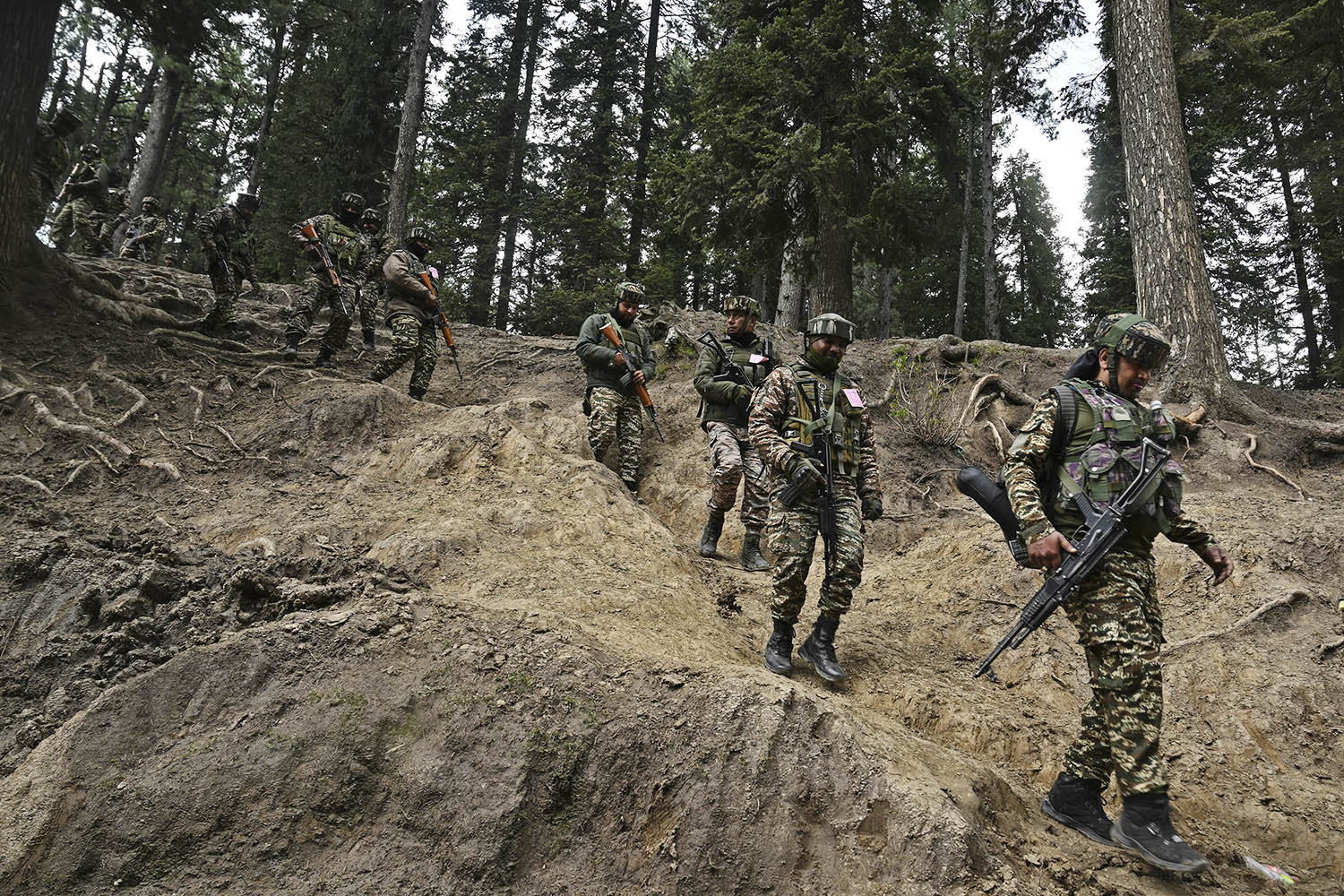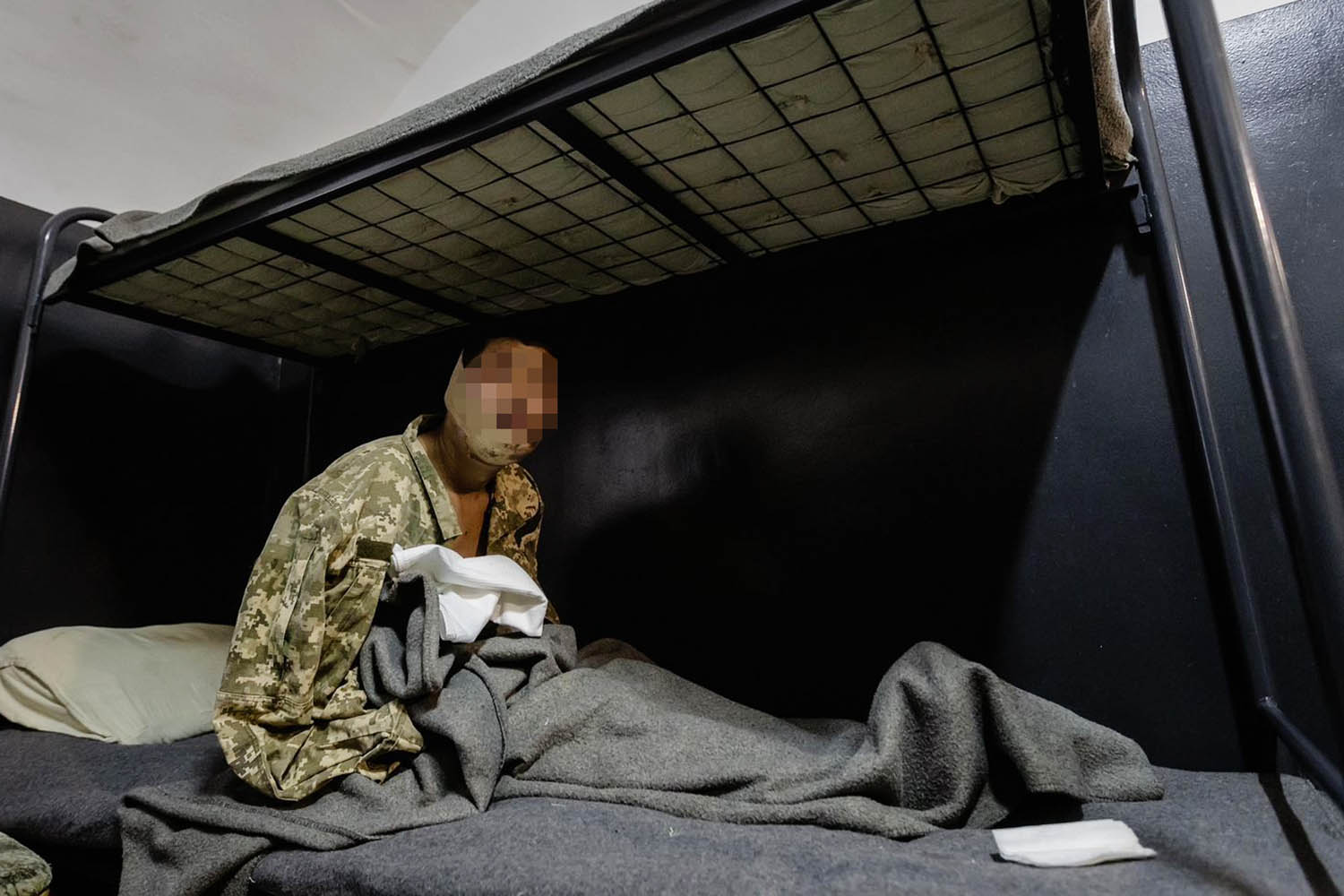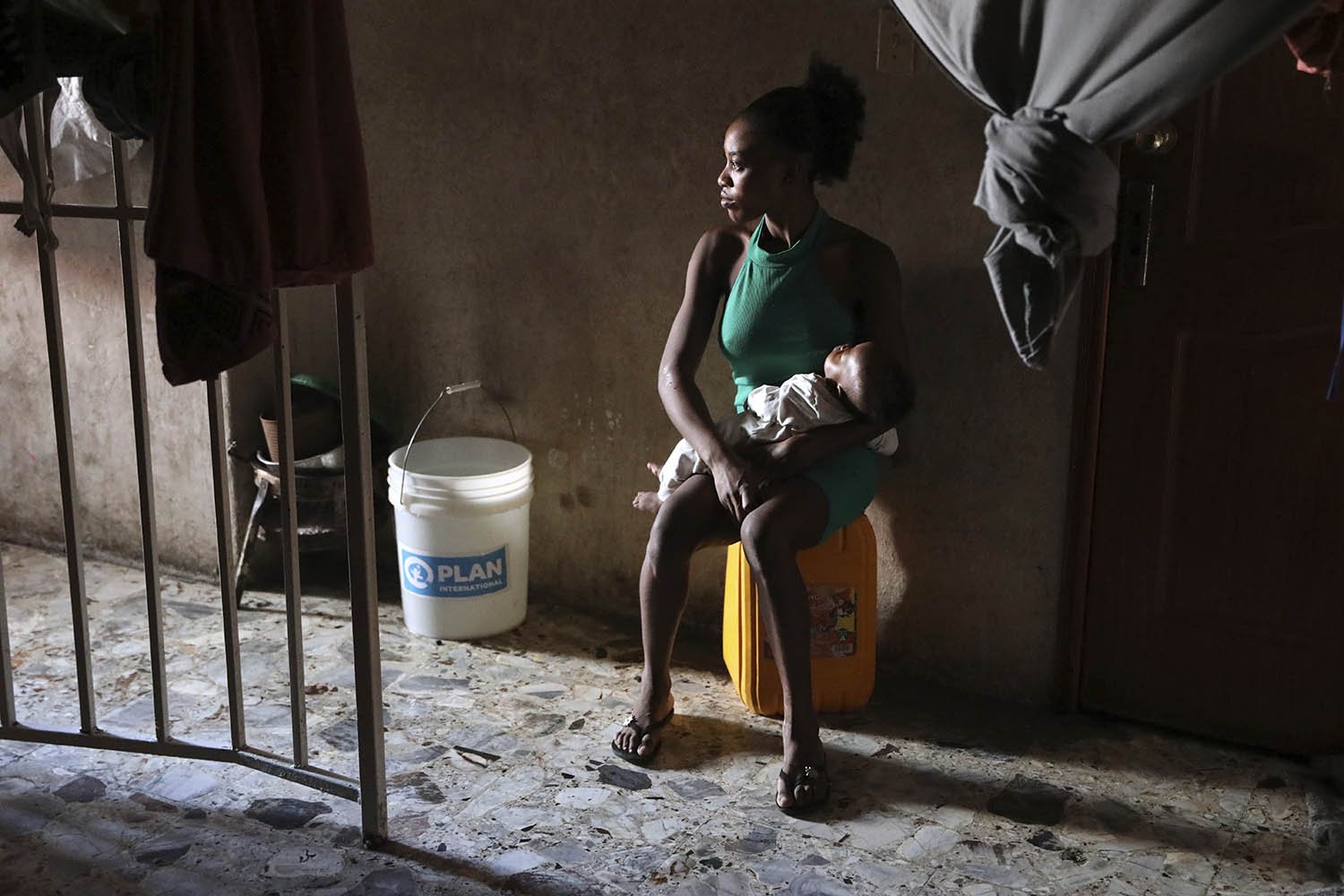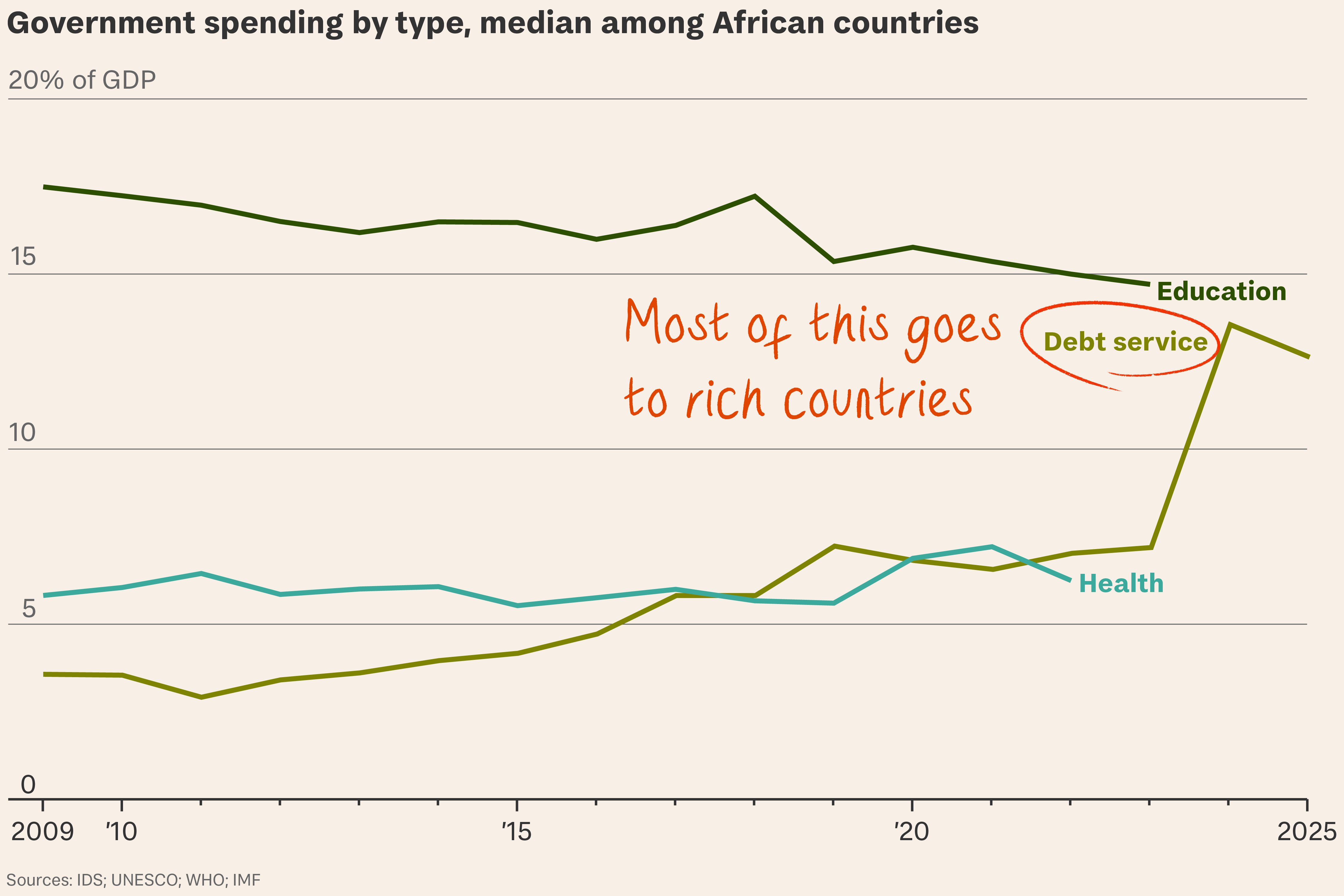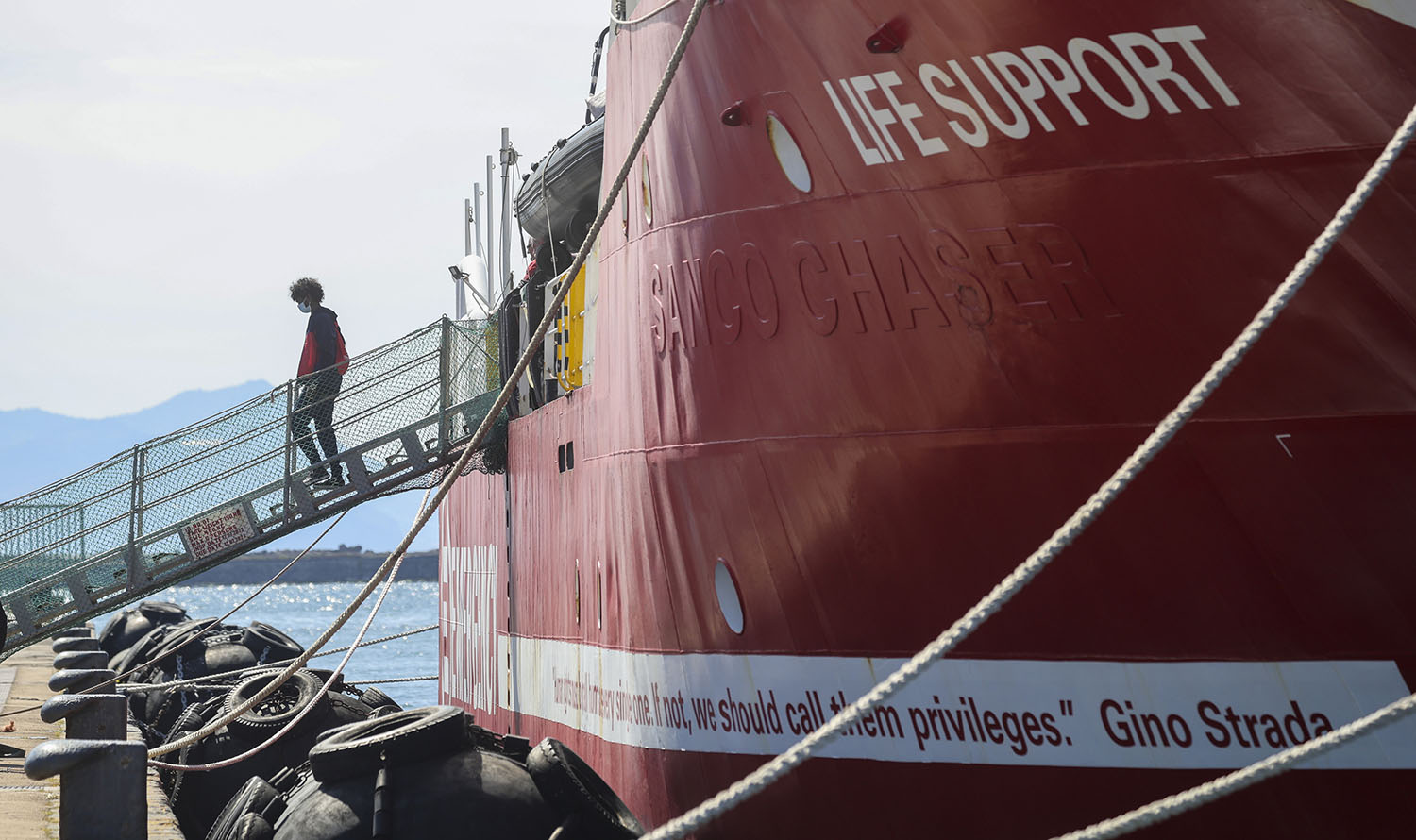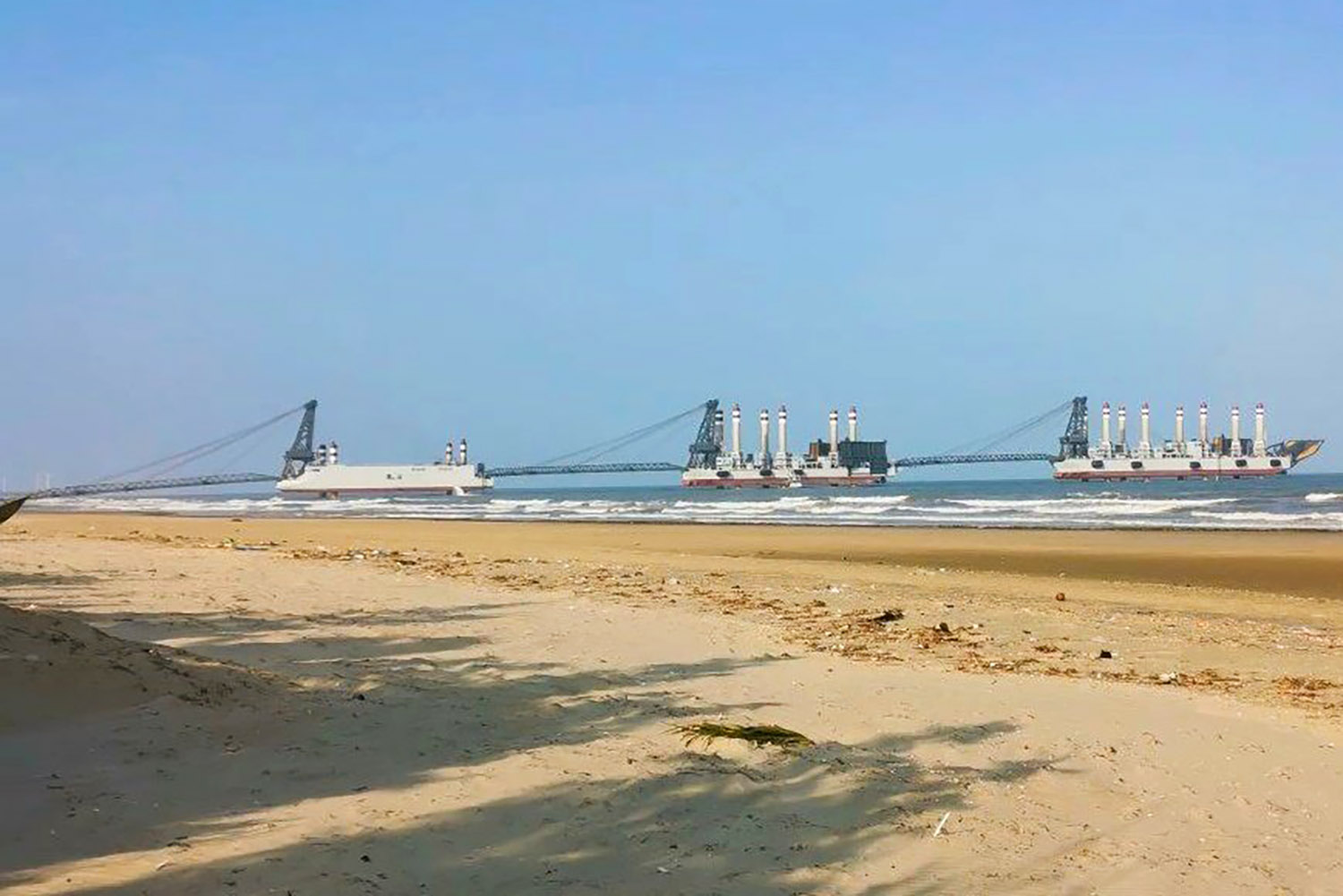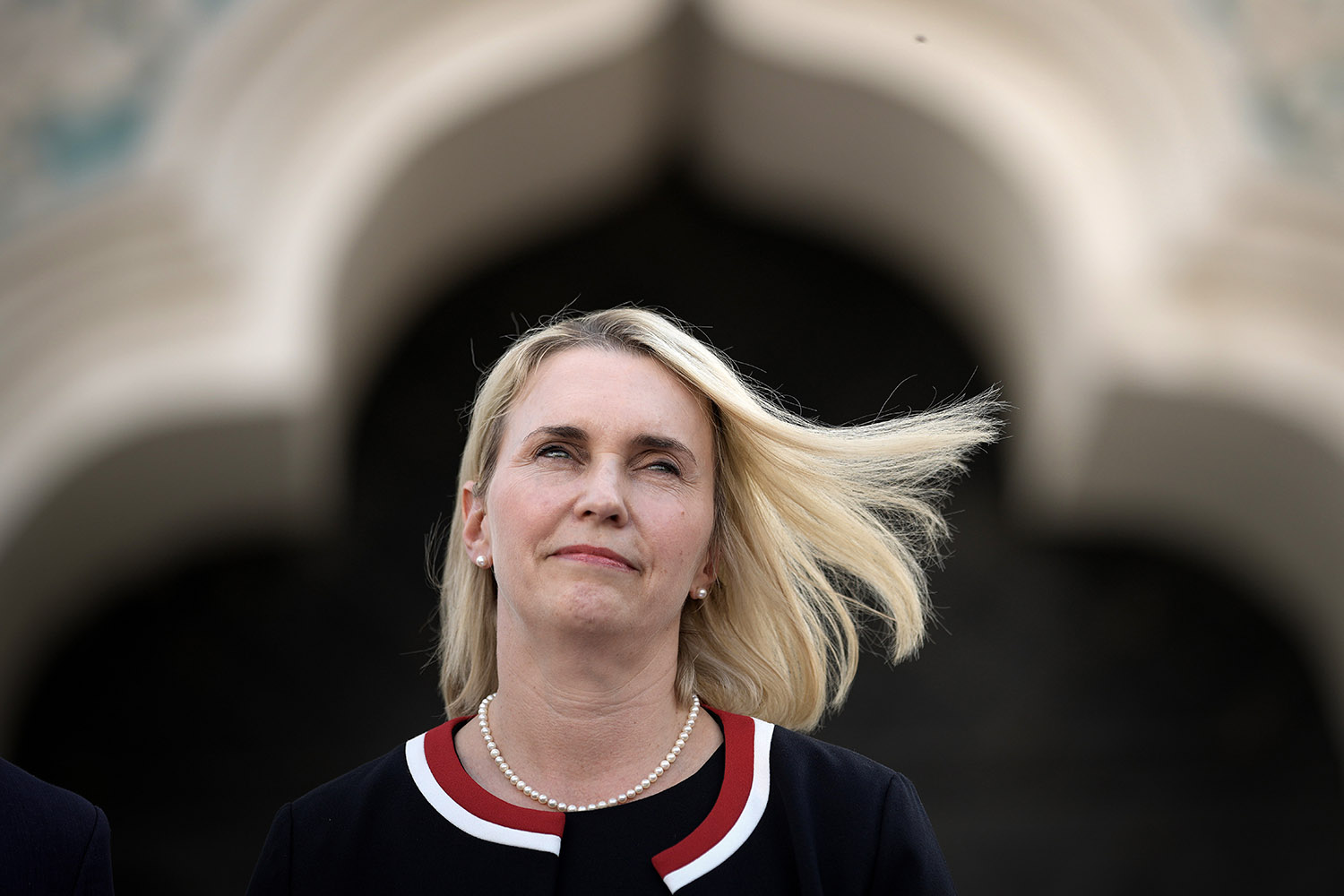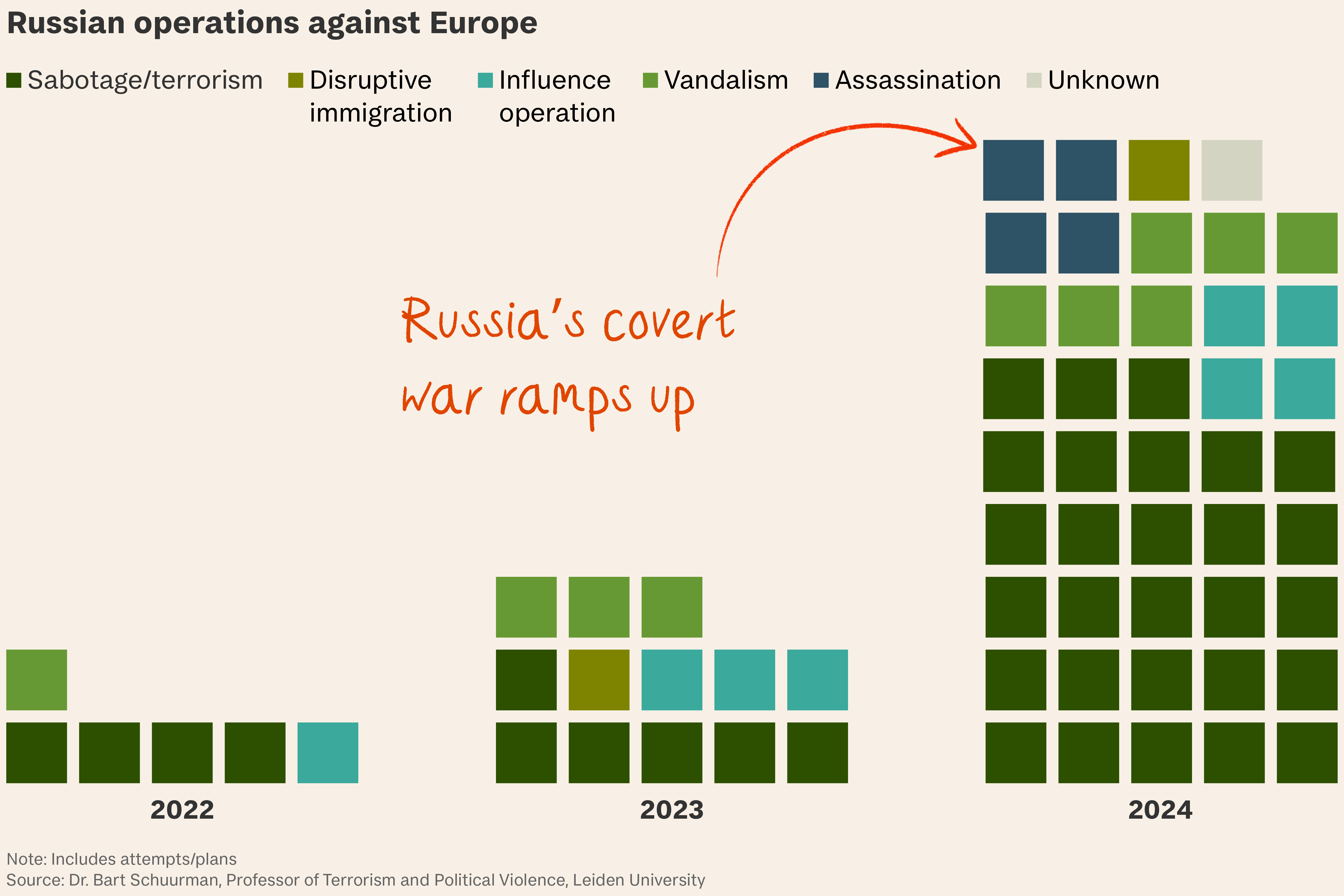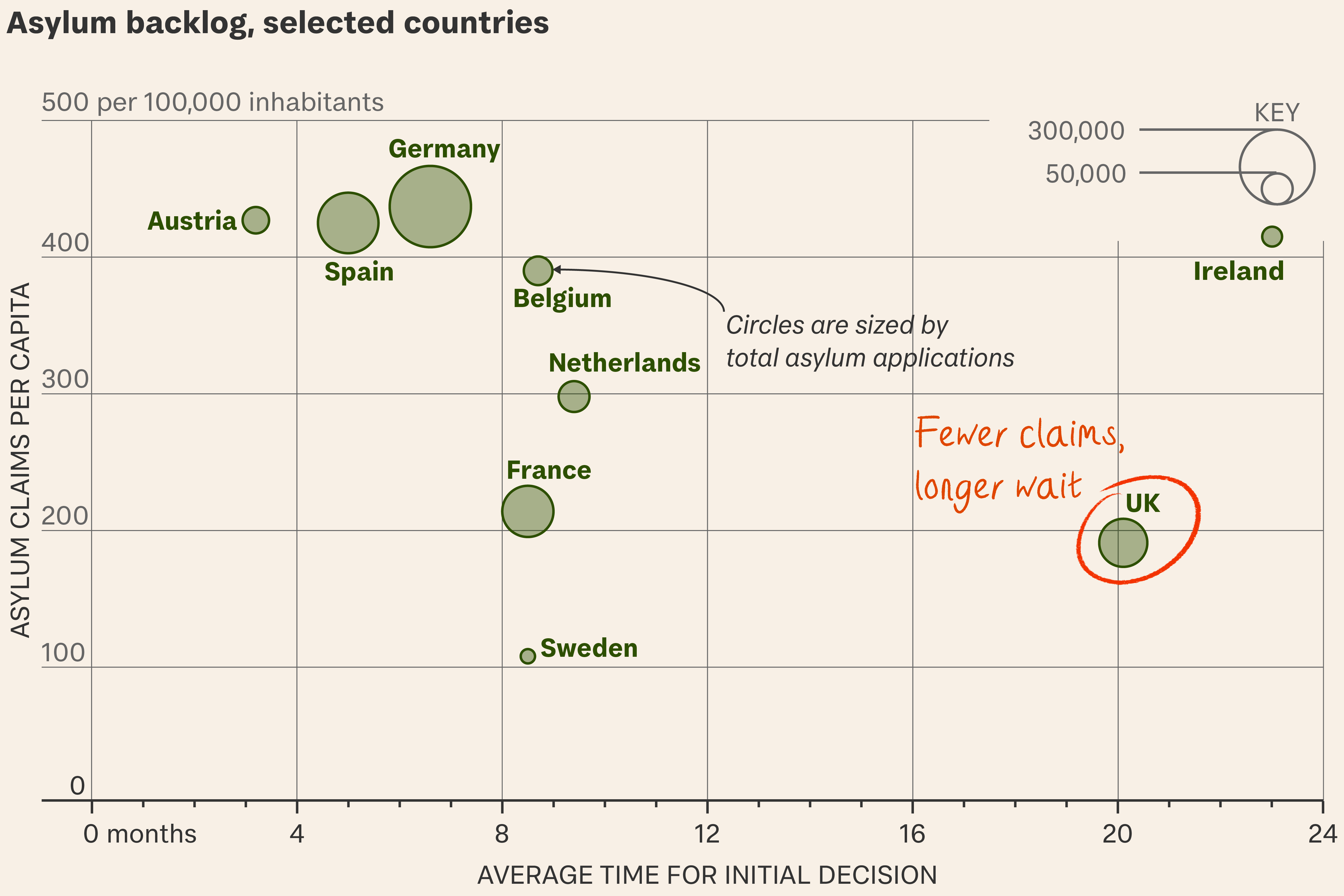
Yvette Cooper, Labour’s home secretary, told parliament on Monday that the Conservative government spent £700 million on its plan to deport asylum seekers to Rwanda, and had planned to spend more than £10 billion over a six-year period.
So what? That’s much higher than previously announced, for a plan that was scrapped on day one of the new government with not one person forcibly sent to Rwanda.
- Around 150 asylum seekers who were unlawfully detained for weeks after being listed for removal to Rwanda have now been released on bail.
- 8,500 people in the wider Rwanda cohort had their asylum claims paused for years.
- Those are now added to a backlog of claims that could leave thousands stranded in unsuitable accommodation by the end of the year. Silver lining: one such place, the Bibby Stockholm barge, will close next January.
Detention. The Home Office detained asylum seekers for up to eight weeks ahead of the UK election, which their lawyers say was unlawful and a waste of judicial resources. They are currently preparing false imprisonment claims against the government on the basis that:
- there were no prospects of imminent removal, and
- they were still waiting for a decision on their applications.
“They kept saying it’s the process, but I had a lot of questions and even they had no information. And we couldn’t access anything, I couldn’t sleep, I was scared and shaking all the time,” one of the detainees told Tortoise. His absence cost him his place at college.
Backlog. There are 118,329 people still waiting for an initial decision on their asylum application (a quarter of claims are more than a year old), according to the Refugee Council charity. The government also faces a growing backlog of asylum appeals which is already four times higher than a year ago (27,000 currently waiting to be heard). Under current legislation, anyone who arrived after March 2023 cannot have their asylum application processed, leaving them stranded in indefinite limbo.
Hotels. There are 35,686 people currently housed in hotels at a cost of around £2.9 million a day. More than half are from countries like Afghanistan and Syria, which have initial asylum approval rates of at least 80 per cent. There’s also a big refugee homelessness problem: the number of households requiring support after leaving Home Office accommodation rose six-fold last year.
Meanwhile, more people (12,901) have crossed the channel in small boats this year than they did in the first half of last year, with more likely to try in the coming warmer weeks.
If not Rwanda, what? Labour’s solutions so far include setting up a new Border Security Command to tackle smuggling gangs and an £84 million funding package for countries in Africa and the Middle East to counter migration. Keir Starmer said last week he was open to processing asylum claims offshore, similar to Italy’s agreement with Albania.
The new government is still following an “enforcement-heavy approach”, says Peter Walsh of the Migration Observatory.
- In his campaign, Keir Starmer talked up his experience as a prosecutor as a weapon in the fight against traffickers.
- In practice, “the evidence suggests that enforcement has its limits” in bringing down illegal migration.
Money v migration. The alternative of tackling migration at source is nothing less than a colossal global development challenge. Walsh said the £84 million funding package is unlikely to have a significant effect and could even lead to more migration in the short-term if it gives people the resources to migrate.
Another option might be granting asylum visas for agreed safe routes, which would allow claims to be submitted outside the UK, reducing illegal migration and the need for asylum accommodation.
What’s more… Refugees and asylum seekers make up only 11 per cent of immigrants to the UK – but the higher level of legal migration is likely to fall without much government effort as students return to their home countries and fewer people arrive from Hong Kong and Ukraine under special visa programmes. Politically at least, that could be useful.





